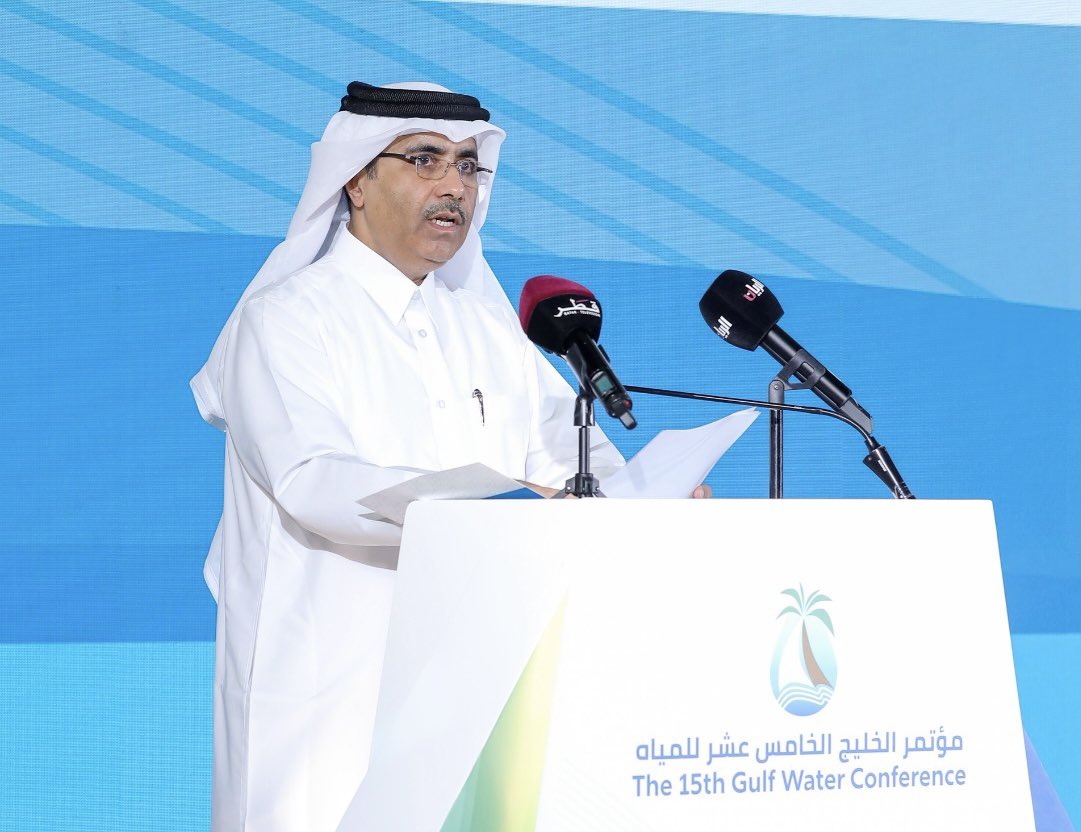This year, Qatar hosts the conference for the third time, delving into the challenges of water scarcity in the region’s desert climate and devising solutions.
The 15th edition of the three-day conference, which started on Sunday, is organised by the Gulf Cooperation Council’s General Secretariat, Water Sciences and Technology Association and Qatar’s Kahramaa water and electricity supply authority.
The conference, which is being held under the patronage of Qatar’s Minister of State for Energy Affairs, Saad bin Sharida Al Kaabi, will explore the theme: ‘Water in the GCC: Embracing Technological Progress.’
Experts from Qatar, neighbouring GCC countries, Luxembourg and beyond will review current and newly emerging technologies within the water sectors and explore the challenges to adopting such technologies in the region’s desert climate.
To this end, the conference will also unpack the critical role of investment in localised research to produce regional-focused technologies and solutions to the Gulf’s water challenges.
Experts will also put forward their technological solutions being implemented in the region, and beyond, to tackle water related challenges.
These challenges include tackling the environmental impacts of desalination on the coastal ecosystems, methods of sustainably extracting water from air powered by solar energy, and assessing groundwater suitability for drinking and irrigation purposes – among many others.
“Despite the challenges facing the Gulf countries regarding water scarcity, work is underway in all countries to help produce high-quality water,” said Mohammad Al Mohannadi, the Public Relations and Communication Manager at Kahramaa.
Qatar’s history of Gulf Water Conferences
In 2001, the Gulf Water Conference was held in Qatar for the first time under the patronage of Sheikh Jassim bin Hamad Al Thani.
At the time, the conversation of the hour for the fifth edition of the conference was ‘Water Scarcity in the Gulf.’
The 2001 conference was organised by the Qatari Ministry of Municipal Affairs and Agriculture, Kahramaa, the University of Qatar, alongside the GCC Secretariat and Water Sciences and Technology Association.
The conference explored how climate change may impact water security in Qatar, the use of shared water resources and so much more.

Later for the conference’s tenth edition, Qatar hosted experts of the world to discuss the ‘Water-Energy-Food Nexus.’
Under the patronage of Mohammed Saleh Al Sada, Qatar’s former Minister of Energy and Industry, the conference explored the impacts of water security on agricultural production in the region. Other topical seminars also included maintaining clean water networks and optimising the region’s water quality.
“Unlike other natural resources, water has great importance as indispensable for human survival, a strategically vital resource, and an essential input for the development process for nations,” said Waleed K Al Zubari, the former chairman of the conference’s scientific committee, about the tenth edition.
He further spoke about the salience of the Gulf Water Conference for the region.
“In the GCC countries, situated in one of the driest region of the world, water management and its sustainable provision to the various development activities has grown to be one of the most important and challenging tasks faced by the water authorities in these countries due to limited available natural water resources on one hand, and the escalating sectoral water demands resulting from unprecedented population and economic growth on the other,” he added.







